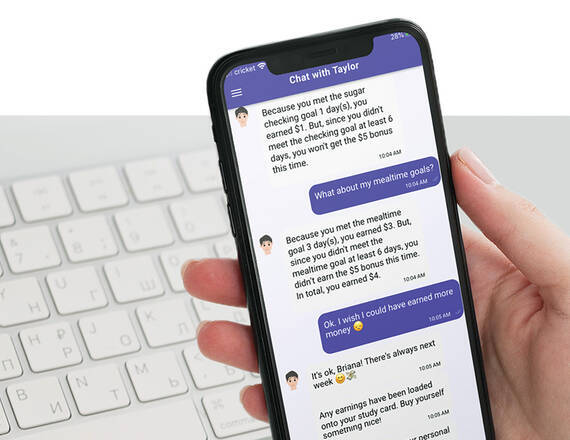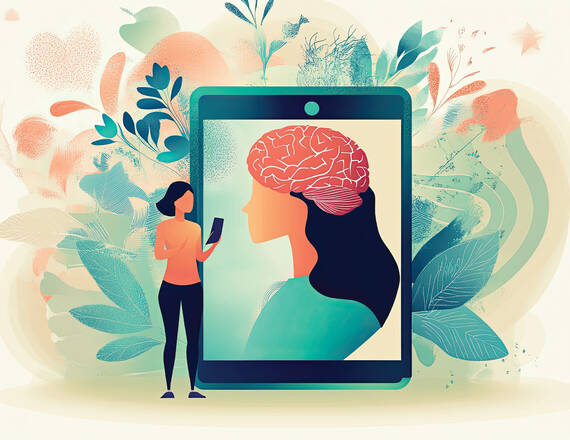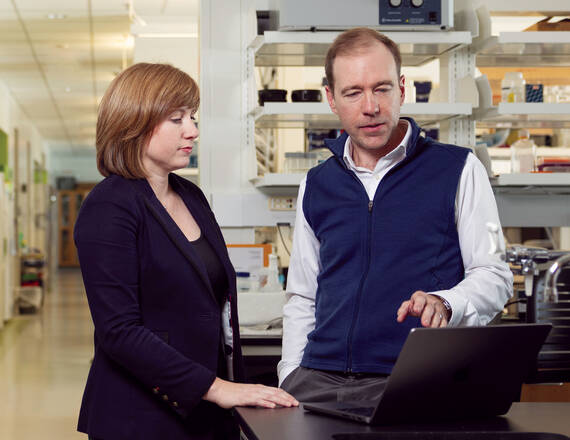Delivering behavioral health care to you, when you need it most
With behavioral health care in high demand, there are not enough trained clinical professionals to meet the need. That’s where the Center for Technology and Behavioral Health (CTBH) at the Geisel School of Medicine comes in. By supporting CTBH, you are helping innovators and clinicians across disciplines are developing and evaluating digital technologies to bring personalized, science-based care to patients anytime, anywhere.

Statistics
#1
Drug overdose is the leading cause of death of Americans under age 50—killing more people than car crashes, gun violence, and HIV.
122
million Americans live in areas without enough mental health professionals.
51%
of people with depression reported a reduction in symptoms after using an AI-powered therapy chatbot in a CTBH-led clinical trial.
They’re like a ‘virtual clinician’ in your pocket 24/7 to support the full spectrum of health—from changing unhealthy behavior, to helping people effectively manage chronic conditions, to reducing premature deaths worldwide.

Join the revolution in AI-powered, student-centric mental healthcare.
Created by and for Dartmouth students, Evergreen is a first-of-its-kind AI-driven mental health platform that stands to foster new levels of connection, support, and comfort.
Built upon decades of Dartmouth-led research, Evergreen aims to strengthen mental health and well-being at Dartmouth and beyond. Your investment in Evergreen will allow us to build the technology to empower students to reach their full academic and personal potential.

First Therapy Chatbot Trial Yields Mental Health Benefits
In the first-ever clinical trial of a generative AI-powered therapy chatbot, CTBH researchers found that the software resulted in significant improvements in participants’ symptoms. While AI-powered therapy is still in critical need of clinician oversight, these results show that it has the potential to provide real-time support for the many people who lack regular or immediate access to a mental-health professional. The results of this groundbreaking study were featured in The New York Times, Forbes, MIT Technology Review, and more.

Video Games for Your Health?
CTBH faculty member Lynn Fiellin, MD, is using video games to prevent health issues, leveraging the power of play to instill healthy behaviors in young people around the globe. Her work tackles issues such as opioid use, sexual health, and mental well-being and resilience.

SweetGoals: A New Approach to Type 1 Diabetes
Could incentives and virtual coaching help young adults with type 1 diabetes? That’s the premise behind a national clinical trial run by Geisel School of Medicine professor and CTBH faculty member Catherine Stanger, PhD.

About the Center for Technology and Behavioral Health
The Center for Technology and Behavioral Health (CTBH) at Dartmouth comprises a diverse team with expertise in behavioral health, technology, health economics, ethics, and public policy. Its mission is to generate the foundational knowledge that shapes the future of science-based digital health and to strategically work with a broad array of partners to ensure global access to the most effective and engaging digital health tools. CTBH is a P30 “Center of Excellence” funded by the National Institute on Drug Abuse.


